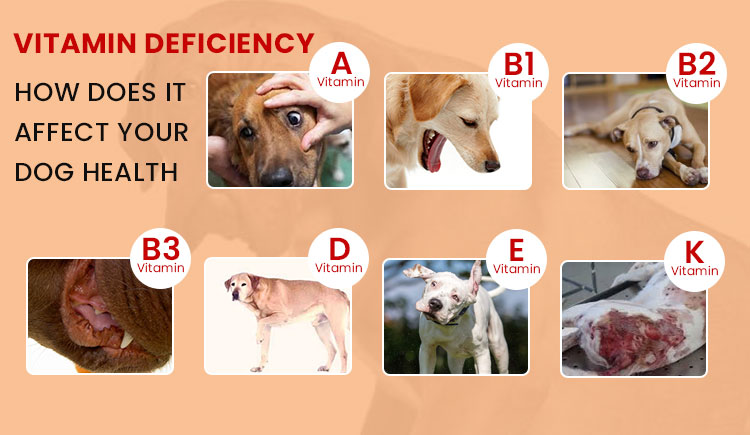When we think about nutritiously rich dog food the first thing that comes to our minds is fat and protein content. However, many of us just miss to consider the major fact that along with proteins and fat, vitamins also play a crucial role in keeping your pet’s health at the top of the world. Similar to humans, dogs do require vitamins and minerals, and in lack of these vitamins, they suffer from numerous health conditions relating to deficiency diseases.
Let us get well acquainted with the major vitamin deficiencies in dogs and get enlightened.
Vitamin A
Usually, dogs suffer from various chronic conditions when the level of vitamin A dwindles. This can even lead to night blindness and skin issues. Vitamin A is a fat-soluble component and the food that is often low in fat is the major reason causing the deficiency.
Vitamin B1
It’s often seen that dogs are victim of vitamin B1 deficiency. This deficiency normally causes vomiting, drooling, and loss of appetite. Moreover, the most severe condition may arise when vitamin B1 deficiency lasts for 1 month. Unfortunately, some dogs have intestinal issues that do not absorb vitamin and some others are just missing the right doses in the raw or canned food provided, which happens to cause vitamin B1 deficiency conditions.
Vitamin B2
Vitamin B2 also popularly known as riboflavin exists as a coenzyme, which is responsible for a number of body functions. This vitamin is readily available in the foods you feed your pooch. However, the deficiency condition arises when the pets have been fallen sick or fed low nutritious diet. The inability to process the nutrients is also the number reason for Vitamin B2 deficiency.
Vitamin B3
Also known as Niacin, Vitamin B3 deficiency can lead to complicating situations such as inflamed lips and gums, loss of appetite, seizures and bloody diarrhea. This can even result in black tongue – a condition known as Pellagra. Proper supply of diet rich in vitamin B3 can prevent such condition.
Vitamin D
Vitamin D is the most vital vitamin that keeps joints of your dog healthy. Like humans, dogs can also suffer from rickets – Vitamin D deficiency disease, which leads to swollen joints and misshapen legs. Besides this, the lower ratio of vitamin D also ends to the accumulation of calcium in joints which is yet another health condition degrading the normal life of a dog.
Vitamin E
Vitamin E comes with many health benefits. Not just limited to heart and liver, Vitamin E is beneficial for eyes as well as muscles and nerves. Keeping skin glowing, it also enhances the immunity power. Contrarily, too much intake of this vitamin can obstruct the easy absorption of other vitamins like Vitamin A and K. Deficiency of this vitamin can adversely mark the bad note on many health conditions.
Vitamin K
Though not much focus is paid to this vitamin, the deficiency of this may cause the worst of the above situations. Low level of vitamin K would not be able to help clotting the blood in your pooch in case of emergencies, which can lead to hemorrhage.
With the importance of each and every vitamin, it is well understood that deficiency of any one vitamin is not admissible. Pet owners have to be always on the verge to ensure that the dog food they feed their furry companions is highly nutritious and rich in the required vitamins, minerals, and other nutrients.


